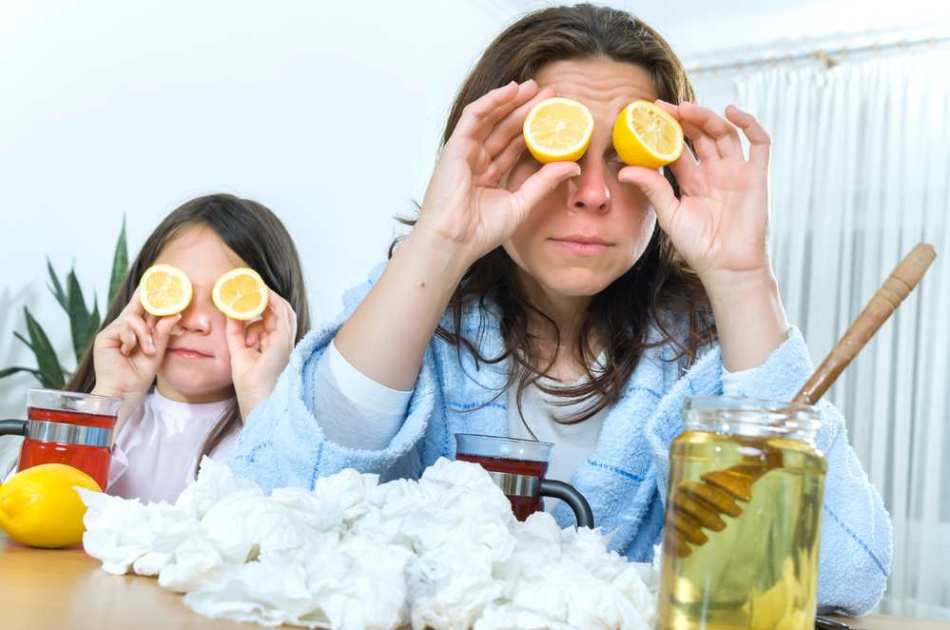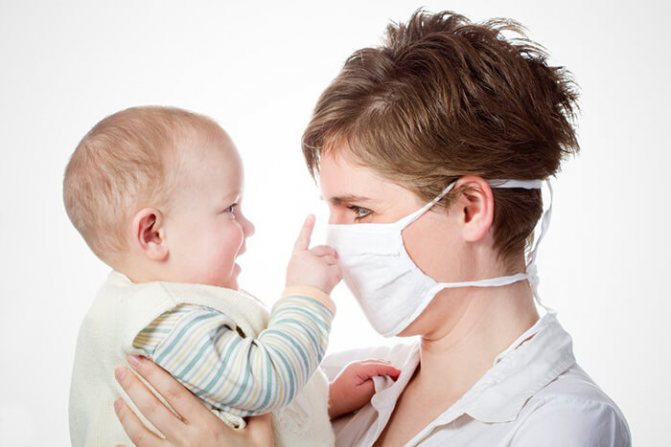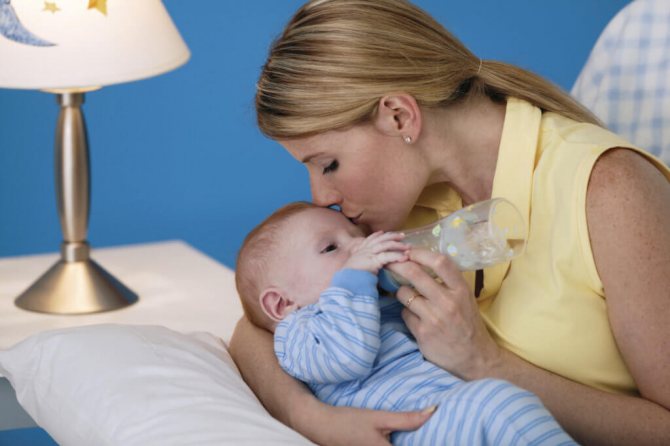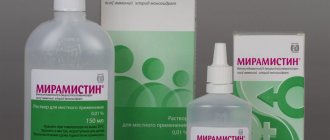A woman’s immunity after giving birth is very weak, so the likelihood of contracting acute respiratory infections or the flu is high. Having discovered signs of the disease, many women whose baby is breastfed begin to worry that they can transmit the infection to him through milk and often stop breastfeeding and switch to formula feeding.
But is this decision really correct? Is it really worth stopping breastfeeding if you have a cold while a nursing mother is being treated, or will such a decision cause more harm than good? You will find answers to these questions and others in this article.
Is it possible to breastfeed if you have a cold?
Breast milk is a storehouse of useful substances for the baby, because it contains all the proteins, fats, carbohydrates and vitamins that the child’s body needs for proper development.
Doctors recommend continuing to breastfeed a baby for as long as possible, at least up to a year, because not even the most popular milk formula can compare in composition with mother’s milk.
Many women, especially those who became mothers for the first time, having caught the virus and become ill, worry about whether it is possible to breastfeed the child and often act independently, stopping feeding or reducing the frequency of putting the child to the breast or transferring him to artificial nutrition, without receiving specialist permission.
When treating a viral disease of a nursing mother, doctors categorically prohibit stopping breastfeeding, even despite her illness, but only if the treatment does not involve taking pills, which absolutely cannot be used during lactation.
Colds, unless, of course, a bacterial infection is added to them, are almost never treated with antibiotics, for this reason there is no reason to stop breastfeeding.
When visiting a doctor, a woman must inform him that she is breastfeeding her baby, and then the specialist will be able to choose the treatment that suits her. It should also be noted that breastfeeding during a cold is considered beneficial for a child, because along with milk he receives antibodies that resist the virus.
Important! When a child is deliberately transferred to artificial feeding, the load on his immune system and psyche increases, since it is difficult for an infant to experience separation from the breast and thus a decrease in physical contact with his mother. During this period of time, his body is especially at risk of disease.
Causes of a runny nose
The causes of a runny nose during breastfeeding vary. Here are the main ones:
- ARVI
- Allergy
- Sinusitis
- Irritation from slimy dust
- Drying of the mucous membrane due to dryness in the room
- Injuries.
Most often, a mother's runny nose during lactation is associated with a respiratory infection. it may be accompanied by fever and intoxication. But very often, nasal discharge is the only symptom of ARVI. Viruses penetrate the nasal mucosa, increase its permeability, resulting in abundant clear discharge. Rhinitis occurs mainly during periods of increased incidence of viral respiratory infections, from late autumn to early spring.
See also:
How to treat herpes while breastfeedingProblems with breastfeeding
Dangers of X-rays while breastfeedingProblems with breastfeeding
Is it possible to continue breastfeeding if poisoned? Problems with breastfeeding
With an allergic rhinitis, the discharge will also be clear, there is no fever or intoxication. Watery eyes and an allergic rash may occur. This kind of runny nose appears during the flowering period of plants. If the allergen is at home, the symptom decreases when the mother goes for a walk.
Sinusitis often complicates ARVI or occurs independently. In this case, the discharge is purulent, yellow or green, and thick. They are accompanied by severe nasal congestion, headaches, and the temperature may rise. Other causes of runny nose during breastfeeding are quite rare.
Can a baby catch a cold from its mother?
The virus is transmitted by airborne droplets or through direct contact with a carrier of the disease. Even small children who have not yet acquired a strong immune system are no exception. If a nursing mother has a cold, the disease can spread to the baby, but not through breastfeeding.
How to recognize and treat staphylococcus in the mouth?
In order to protect the baby, you need to follow basic rules: do wet cleaning, ventilate the apartment and put on a bandage at every contact. It is necessary to continue breastfeeding for your own health and for the benefit of the baby, but only if antibiotics are not prescribed for treatment, which are on the list of prohibitions for mothers feeding their children with milk.
In order to reduce the risk of infection of a child, it is recommended to consider and follow certain rules:
- Determine the time for taking medications and feeding the baby so that a sufficient amount of time passes between them, namely 1.5-2 hours;
- Increase the time between feedings to 4.5 hours. In this case, you will have to use the mixture as a supplement, and express excess milk to prevent the development of lactostasis, which can develop into mastitis;
- Breastfeeding must be stopped if the baby has an allergic reaction or swelling, and then be sure to show him to a doctor.
Recommended video:
I have the flu - how can I avoid infecting my child?
In general, the flu itself is a viral disease, which is dangerous not because of its effect on the body, but because of its consequences. This is due to the fact that very often, after a child has had the flu, complications with the heart, joints or other vital organs may occur. That is why it is easier to prevent an infection than to treat it.
Accordingly, much attention needs to be paid to prevention. The best means of prevention is vaccination. However, it is better to do it on time, usually in October or September. Depending on when the flu epidemic is expected. If you did not have time to get vaccinated, or for some reason do not want to get vaccinated, you must adhere to other rules of prevention.
I have the flu, how not to infect your child:
- Temper your child
- Take your baby for a walk outside
- Try to eat foods that boost immunity
Of course, adults suffer from the flu quite difficult, but children suffer more. This is due to the fact that all inflammatory processes, as well as viral pathogens that enter the child’s body, develop at a reactive speed, much faster than in adults. Accordingly, children get much sicker; the flu is often accompanied by a temperature that rises to 40 degrees and severe vomiting. That is why it is necessary to provide not treatment, but to isolate the baby as much as possible from communication with a sick relative.

Mom and baby
Prevention measures
During the period of illness, there remains a high risk of infection for the child and other household members, so it is important to follow preventive measures to protect your loved ones, but especially the baby. So:
- Whenever you have contact with a child, use a gauze bandage that covers the nose and mouth. The bandage needs to be changed every 3-4 hours, but if it gets wet, it needs to be replaced immediately;
- To avoid the accumulation of germs in the room, it is necessary to ventilate the room every hour;
- After each touch of your mouth or nose, you must wash your hands thoroughly with soap, this is especially true if the mother has herpes on her lip. Instead of soap, you can use a bottle of antiseptic.

Will breast milk spoil if you have a cold?
The well-established opinion that during a woman’s illness, her breast milk can deteriorate has long been refuted by pediatricians. If she does not take drugs prohibited for the lactation period to treat the disease, then the milk cannot be harmful to the baby and will not turn sour.
Moreover, during this period there is no need to express, much less boil, expressed breast milk, since boiling destroys all the beneficial substances.
Important! Breastfeeding can be dangerous only if the mother does not listen to pediatricians and self-medicates, using various drugs, without even knowing whether they are prohibited.
What causes meningitis and why is it dangerous?
Folk remedies for the treatment of runny nose
Treatment of a runny nose while breastfeeding can also be done using home folk remedies. Be sure to consult your doctor first; he must determine the cause of the ailment. He will also advise what can and cannot be used to treat a runny nose. If it is a common cold, you can try some methods. For example, you can easily prepare a saline solution for rinsing your nose yourself. Add a teaspoon of regular or sea salt to a liter of boiled water and mix thoroughly. Drop into the nose several times a day, or rinse the sinuses with a syringe without a needle.
Infusion of chamomile or calendula helps well. Pour a tablespoon of dried flowers into a glass of boiling water and leave for an hour. After this, filter, drop into the nose 5-6 times a day or use for rinsing. For sinusitis, it is recommended to drip Kalanchoe juice into your nose, 3-4 times a day. Aloe juice also works well for a runny nose. It is important to remember that the juice of these plants retains its medicinal properties for no more than a day, so you should always take fresh juice for instillation.
There are also numerous folk recipes for oil remedies for the common cold. The simplest ones are lubricating the nose with Vaseline, olive oil, sea buckthorn, and sunflower. Aromatherapy and inhalation will help in treatment. Onions and garlic should be used for treatment with caution, they can cause burns to the mucous membrane. Getting into breast milk, they spoil its taste and make it bitter. Any folk remedies for treating a runny nose while breastfeeding can only be used after consulting a doctor.
Can mom take medications?
When treating a cold for a nursing mother, many drugs are prohibited, so any use of medications must be agreed upon with a therapist. When self-medicating, there is a high risk of harming yourself and your child. So what can be treated?
Antiviral drugs are used to treat acute respiratory viral infections and acute respiratory infections, but it must immediately be clarified that most drugs are prohibited for a mother who is breastfeeding. Among the approved drugs, the most effective ones should be highlighted:
- "Aflubin";
- "Grippferon";
- "Oscillococcinum"
If a high temperature rises during illness, there is a need to take antipyretic medications.
These medications, of course, are undesirable for a woman whose baby is breastfed, but it is necessary to reduce the temperature, especially if it lasts for a long time, but before you start taking it, you should try the folk recipe - wiping the bite with a weak solution, and the procedure must be done before until the mark on the thermometer drops to 37 and 5 degrees.
If this method turns out to be unpromising, you can take special syrups for babies:
- "Panadol";
- "Nurofen"
Important! High body temperature can contribute to complete loss of breast milk.

When treating a runny nose, a woman can use sea salt-based nasal decongestants.
If a woman is afraid to resort to drug treatment, then you can pay attention to traditional medicine. It is only worth noting that folk remedies have one drawback: the mother and, accordingly, the child may experience an allergic reaction.
Antiviral and antimicrobial agents
The effectiveness of antiviral agents and immunomodulators for common acute respiratory viral infections is very doubtful. Moreover, they are not recommended for use during breastfeeding, since their side effects in children have not been sufficiently studied. The following are approved for use in nursing mothers:
- Grippoferon (recombinant human interferon)
- Poludan
- Derinat.
A medicine like IRS-19 will not help with viral diseases. It contains protein components of the shell of some bacteria. It stimulates the production of antibodies against them. It is recommended to use it for chronic sinusitis, as well as drugs with antibiotics. The drug received good reviews. The latter should only be prescribed by a doctor, preferably after sowing nasal contents for sensitivity.
When should you absolutely not feed?
If the body is severely intoxicated, breastfeeding should be stopped, as well as when taking strong medications to treat inflammation. If you continue to feed, there is a risk of harm to the baby's health.
If the temperature during illness does not rise above 38 degrees, then you need to continue feeding for the benefit of your baby, but if the temperature rises higher and higher, then the quality and consistency of mother's milk deteriorates significantly.
It is forbidden to feed the baby if the woman is taking antibiotics to treat the disease. Thus, if this type of drug enters the body, it can cause complications in the form of dysbacteriosis, which will negatively affect the child’s health.

Continuing feeding is also prohibited in case of the following diseases:
- Infectious diseases that occur in an acute form, since toxic substances can get into the milk;
- Purulent mastitis;
- It is forbidden to feed the child after surgery if anesthesia was used, as well as strong medications, including antibiotics.
What to do if a nursing mother shows signs of a cold?
Timely treatment allows the mother to get rid of the virus in a short time and not give up breastfeeding. A woman needs:
- If you feel unwell, immediately seek help from a doctor who will identify the cold and prescribe competent treatment for the mother, which will not negatively affect the health of the baby;
- It is highly not recommended to express and boil breast milk and then give it to the baby to drink, since after processing it loses its properties. If your health allows, then you should continue to put the baby to your breast;
- If, nevertheless, the baby catches an infection and catches a cold, then there is no need to give him additional medications; those contained in the breast milk that the mother will feed him will be enough;
- Medicines that contain aspirin should be taken with extreme caution, since this drug causes metabolic disorders in mother and child;
- Analgesics should also be on the “stop” list, due to the fact that they have a strong effect on the child’s psyche. You should also avoid medications that contain bromhexine;
- All medications must be taken strictly in accordance with the prescribed dose;
Desquamative glossitis - treatment, prevention, complications and prognosis
Important! If the mother has a serious illness and feeding becomes impossible, then it is necessary to express milk from the breast every 4 hours to exclude disease of the mammary glands.
Recommended video:
For sore throat
Antiseptic agents that have a local effect can help if the mother has a cold.
For rinsing, a regular saline solution with a few drops of iodine is suitable. Popular and safe medicines are Hexoral, Chlorophyllipt, Chlorhexidine. In addition, lozenges and dissolving tablets will relieve sore throat, for example:
- Strepsils;
- Lysobacter;
- Septolete;
- Sebidin.
These drugs are not contraindicated during breastfeeding. Regular resorption of lozenges allows you to temporarily relieve pain and feel better when swallowing food.
Should you feed a child who has a cold?
Children under one year of age rarely get sick, but there are still situations when the baby gets sick, so many mothers wonder whether they should breastfeed their child or wait until the body copes with the virus and, for this purpose, reduce the frequency of breastfeeding.
The child's illness should not affect the frequency of attachment. You only need to take into account the child’s health status, so if he has a stuffy nose, then it will be physically difficult for him to drink milk from the breast for a long time and therefore the feeding regime will need to be reconsidered.
It is also worth reconsidering the feeding position if the baby has a stuffy nose. In this case, it is advisable to lift it to a vertical position to free up the nasal passages.
Do not underestimate the role of the female body. So, when the baby is sick, the woman’s body begins to produce even more substances that help defeat the disease. This feature also protects the woman, who will be able to continue caring for her child without fear of becoming infected.
Thus, treating a cold and breastfeeding a child have become completely compatible things, therefore, when the first symptoms of a cold are detected, you should not stop feeding the child, because this will harm him more.
Correctly selected treatment by a doctor will allow the mother to recover in the coming days, and the child will continue to enjoy such nutritious and tasty mother’s milk.











